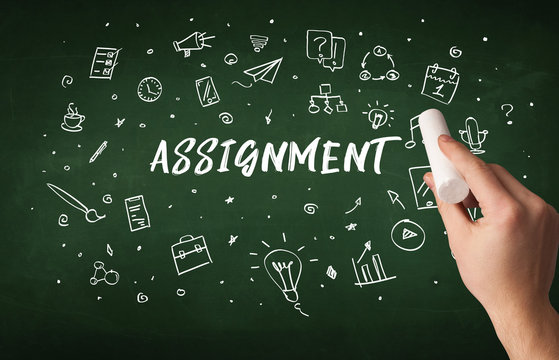HR 360: Navigating the Digital Shift – Trends, Strategies, and Development 2.0
The role of Human Resources (HR) professionals has evolved significantly. This article aims to delve into evaluate what it means to be an HR professional, making reference to the CIPD 2018 Profession Map. Additionally, we will explore the skills and attributes crucial for success across various roles within an organization.
The HR Professional’s Role:
The field of Human Resources encompasses a broad spectrum of functions, ranging from recruitment and employee relations to talent management and strategic workforce planning. The CIPD, a renowned professional body for HR and people development, provides valuable insights into the expectations and competencies required of HR professionals. This section will examine the CIPD 2018 framework to evaluate the core aspects of being an HR professional.
CIPD 2018 Framework:
The CIPD 2018 framework outlines the key areas that HR professionals should focus on, including HR fundamentals, insights, influence, and impact. We will break down each of these elements, emphasizing the importance of a strategic approach, effective communication, and the ability to drive positive change within the organization.
Skills and Attributes Analysis:
Recognizing that the HR function extends beyond a one-size-fits-all model, we will conduct a detailed skills and attributes analysis of a range of different roles within an organisation.
. Whether it’s a talent acquisition specialist, a learning and development manager, or a strategic HR business partner, certain competencies remain universally significant. We will explore these commonalities while acknowledging the specific skills required for distinct HR roles.
Diversity in HR Roles:
To provide a holistic understanding, this article will showcase the diversity within HR roles by examining several positions across different organizational levels. By referencing real-world examples and case studies, we aim to illustrate how the skills and attributes identified in the CIPD 2018 framework manifest in various HR roles.
Challenges and Opportunities:
No exploration of the HR profession is complete without addressing the challenges and opportunities faced by HR professionals in the modern workplace. From navigating technological advancements to fostering diversity and inclusion, this section will shed light on the evolving landscape and how HR professionals can proactively adapt to change.
Continuous professional development is paramount. This section will delve into effective strategies for HR professionals to enhance their skills, stay abreast of industry trends, and contribute meaningfully to organizational success.
Lifelong Learning Initiatives:
Encouraging a culture of continuous learning within the HR department can significantly contribute to professional growth. This includes participating in workshops, webinars, and conferences and pursuing advanced certifications such as those offered by the CIPD. Embracing new ideas and staying informed about industry best practices ensures that HR professionals remain valuable assets to their organizations.
Networking and Collaboration:
Building a robust professional network is essential for HR professionals. Engaging with peers, attending industry events, and participating in online forums can provide valuable insights and foster collaboration. By sharing experiences and learning from others in the field, HR professionals can broaden their perspectives and stay ahead of emerging trends.
Mentorship Programs:
Establishing mentorship programs within the HR department or seeking external mentors can be instrumental in personal and professional development. Seasoned HR professionals can offer guidance, share their experiences, and provide valuable advice to those newer to the field. This fosters a culture of knowledge transfer and accelerates professional growth.
Embracing Technology:
The HR landscape is becoming increasingly digitized, with the integration of technologies like artificial intelligence and data analytics. HR professionals must be tech-savvy and open to adopting innovative tools that streamline processes and enhance decision-making. Continuous training on emerging technologies ensures that HR professionals remain agile in the face of technological advancements.
Soft Skills Enhancement:
Beyond technical competencies, HR professionals should prioritize the development of soft skills such as communication, empathy, and adaptability. These skills are integral to building effective relationships within the organization, resolving conflicts, and fostering a positive workplace culture. Training programs and workshops focused on soft skills can contribute to well-rounded professional development.
Adapting to Evolving HR Trends:
In the ever-changing landscape of HR, staying attuned to emerging trends is essential for professionals to remain effective and contribute strategically to organizational goals. This section will explore current and anticipated trends in the field, emphasizing the importance of adaptation for HR professionals.
Remote Work and Flexible Policies:
The global shift toward remote work has reshaped traditional workplace dynamics. HR professionals need to navigate the challenges and opportunities associated with remote work, including the implementation of flexible policies, maintaining employee engagement, and addressing the evolving expectations of a dispersed workforce.
Emphasis on Employee Well-being:
Employee well-being has emerged as a central focus in HR. This includes mental health support, work-life balance initiatives, and creating a positive work environment. HR professionals must proactively implement strategies to foster a culture of well-being, recognizing its impact on employee satisfaction, productivity, and overall organizational success.
Diversity, Equity, and Inclusion (DEI):
The call for increased diversity, equity, and inclusion is louder than ever. HR professionals play a pivotal role in developing and implementing initiatives that promote a diverse and inclusive workplace. This involves addressing unconscious biases, ensuring equal opportunities, and fostering a culture where every employee feels valued and heard.
Data-Driven Decision-Making:
The use of data analytics in HR is on the rise. HR professionals need to harness the power of data to make informed decisions related to talent acquisition, performance management, and workforce planning. Understanding and implementing data-driven strategies can significantly enhance the effectiveness of HR initiatives.
Agile HR Practices:
Traditional HR processes are giving way to more agile and responsive practices. HR professionals should embrace agility in their approach, allowing for quicker adaptation to changes in the business environment. This includes agile methodologies in project management, iterative performance feedback, and a willingness to experiment with innovative HR solutions.
Conclusion:
We will emphasize the evolving nature of the HR profession and the need for continuous learning and adaptability. By referencing the CIPD 2018 framework and conducting a thorough skills and attributes analysis, this article aims to provide readers with a comprehensive understanding of what it truly means to be an HR professional in today’s dynamic organizational landscape.
You can read more of the quality content at routineblog



